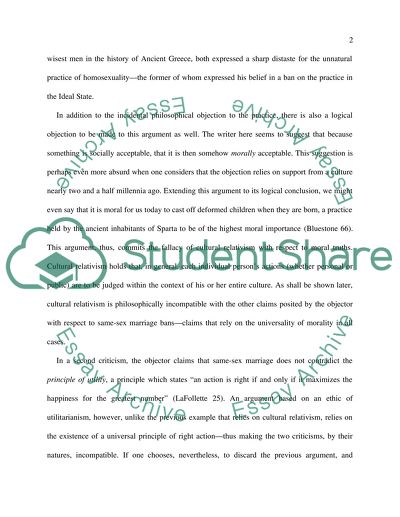Cite this document
(“Same-Sex Marriage Essay Example | Topics and Well Written Essays - 1250 words”, n.d.)
Same-Sex Marriage Essay Example | Topics and Well Written Essays - 1250 words. Retrieved from https://studentshare.org/law/1550054-counter-argument-essay
Same-Sex Marriage Essay Example | Topics and Well Written Essays - 1250 words. Retrieved from https://studentshare.org/law/1550054-counter-argument-essay
(Same-Sex Marriage Essay Example | Topics and Well Written Essays - 1250 Words)
Same-Sex Marriage Essay Example | Topics and Well Written Essays - 1250 Words. https://studentshare.org/law/1550054-counter-argument-essay.
Same-Sex Marriage Essay Example | Topics and Well Written Essays - 1250 Words. https://studentshare.org/law/1550054-counter-argument-essay.
“Same-Sex Marriage Essay Example | Topics and Well Written Essays - 1250 Words”, n.d. https://studentshare.org/law/1550054-counter-argument-essay.


